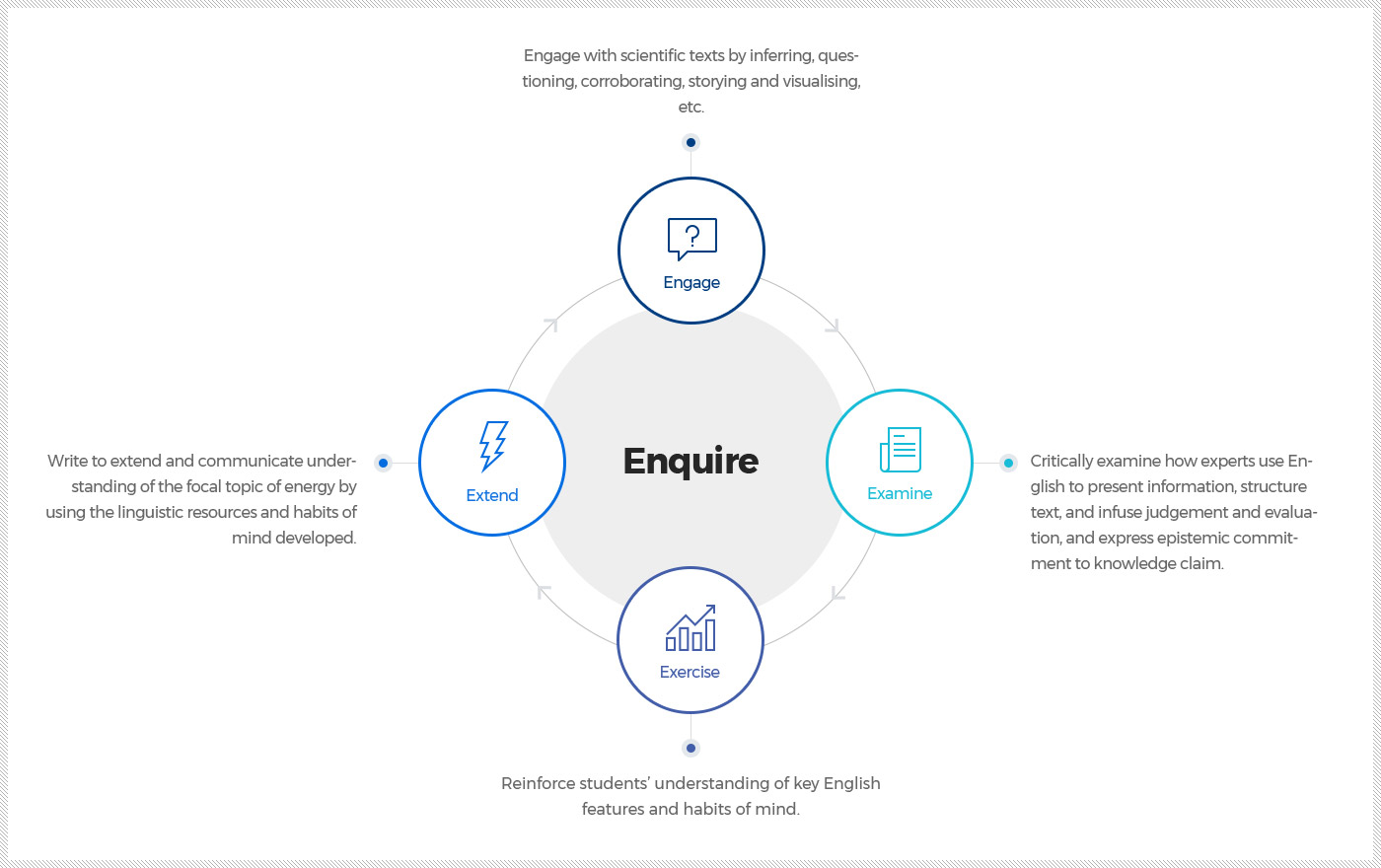eng_sub_left
-
Enquire
Engage
Engage with scientific texts by inferring, ques- tioning, corroborating, storying and visualising. etc.
Extend
Write to extend and communicate under- standing of the focal topic of energy by using the linguistic resources and habits of mind developed.
Examine
Critically examine how experts use En- glish to present information, structure text, and infuse judgement and evalua- tion, and express epistemic commit- ment to knowledge claim.
Exercise
Reinforce students' understanding of key English features and habits of mind.
KENTECH ESP (English for Specific/Scientific Purposes) is designed to enhance the capacity of engineering students from diverse backgrounds to write and speak in English for scientific purposes. Students will be assigned to four different levels of English to acquire the skills and knowledge essential for using English language communication in academic settings.
KENTECH ESP courses focus on exploring the ways in which English can be used as a creative resource for presenting information; structuring texts; expressing points of view; developing arguments; incorporating alternate ideas and voices; and addressing audiences in scientific texts.
KENTECH ESP’s underlying philosophy is that writing is an indispensable tool for cultivating scientific habits of mind. Scientific writing, in particular, contains unique linguistic features that construe special realms of scientific knowledge, values, and beliefs. An understanding of the functionality of these features is critical to the development of literacy in science and engineering.
All ESP courses are integrated into our Energy course curriculum and instruction in order to cultivate habits of mind that reflect how experts think, communicate, and practice in the scientific community.
Course instruction combines a focused discussion about the key genres and characteristics of scientific writing with practical application involving critical analysis of model texts and thoughtful critique of student writing. The 5Es model, illustrated above, helps students build their linguistic repertoires for instantiating meaning in genre-specific, discipline-legitimated, and context-sensitive ways.


